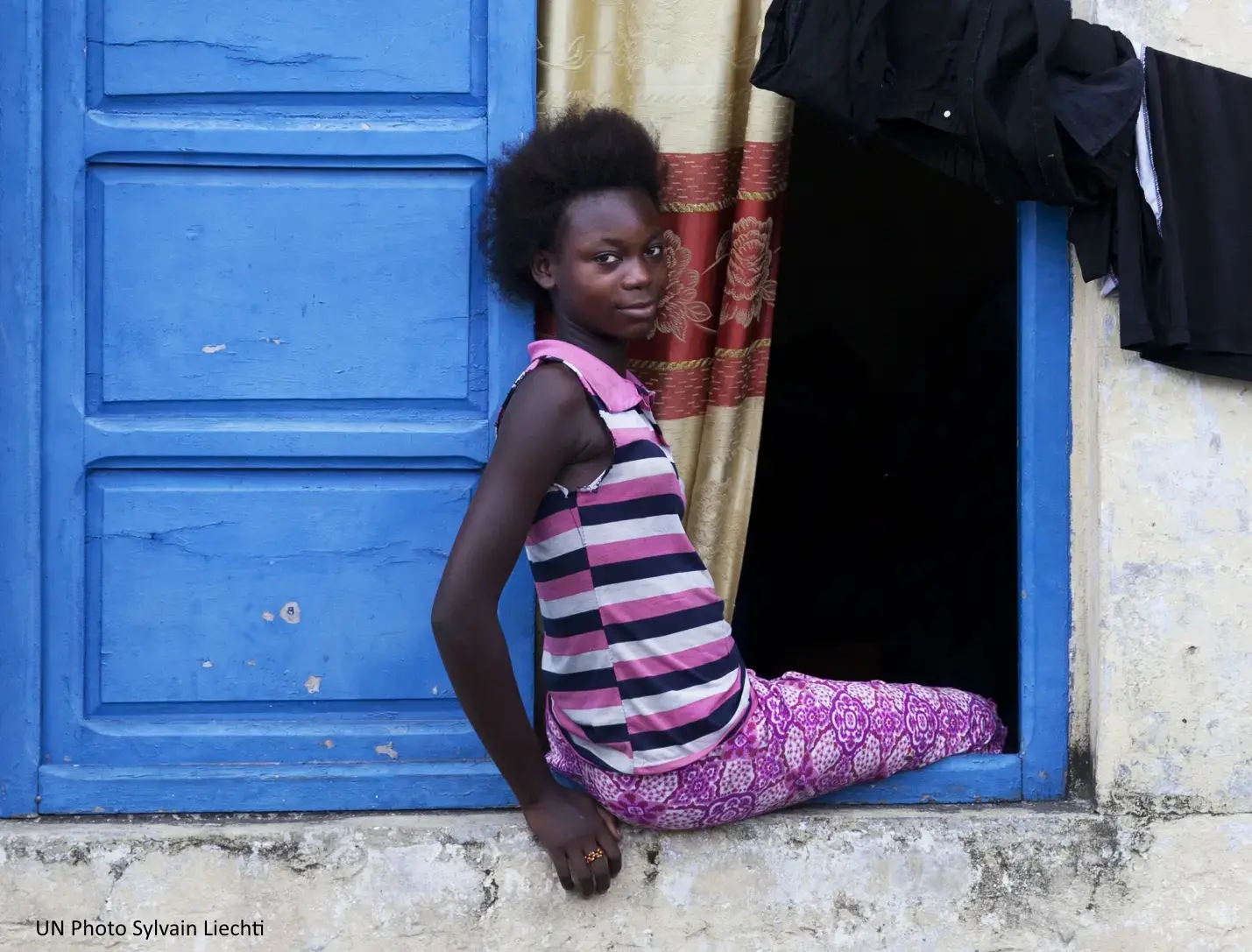Mafeteng, LESOTHO—When a 14-year-old girl was impregnated by a herder in her village, much to the chagrin of her community her parents married her off to the herder.
The girl was still in primary school, yet community members were unable to stop the marriage taking place in their village of Mafeteng, 77 kilometers from Lesotho’s capital Maseru.
Since learning that child marriage is illegal, peer educator ‘Mabohlokoa Tsatsi has vowed never to let something like this occur in her area again. Instead, she will take necessary action, such as reporting such matters to the police.
“During training, we were made aware that ‘yes’ from a child does not mean anything. I will therefore report these kinds of cases, and if parents agree, I will try to advise them,” she said.
In her work as a peer educator, she informs young people aged 10 to 24 years about life skills, sexual and reproductive health, relationships, the risks associated with intergenerational relationships, and how to establish income-generating activities.
Older man bought woman drinks, then married her daughter, 13

kinds of problems, I will become part of them," says Paul Ramose, a
peer educator. © UNFPA Lesotho/Violet Maraisane
In times of drought, girls and young women can feel pressurized to enter into inter-generational relationships and forced marriages, particularly into wealthier families.
Peer educator Paul Ramose became aware of this issue during the UNFPA-supported training.
He spoke of how in Mafeteng, a man who had returned home from working in South African mines befriended and occasionally bought alcohol for a woman who had a 13-year-old daughter. She allowed him to marry her daughter, despite her family’s protests. Eventually, a compromise was reached that the girl could stay married to the older man but they should not engage in sexual relations until the girl was 18 years old.
Said Mr Ramose: “I realized after the training that if I do not take action when I see these kinds of problems, I will become part of them and will also be guilty of the crime. So, from now on I will at least inform the police or other stakeholders,” he said.
With support from UNFPA in Lesotho via the Central Emergency Response Fund (CERF), the training focused on child protection, gender-based violence (GBV) and migration in humanitarian emergencies. More than 60 people participated, including technical teams from various ministries and implementing partners, as well as members of the media, chiefs, counsellors, peer educators.
Grandmother suggested she marry her rapist

the police without being supported by anyone," says Chief Maphathe
Maphathe. He has committed to gathering together community
policing members in his village to discuss gender-based violence.
© UNFPA Lesotho/Violet Maraisane
In another village in the area, a girl who used a taxi for transport was raped by the driver once all other passengers had departed. She convinced her rapist to take her home, where she was living with her grandmother. When her grandmother found out that she had been raped, she suggested that the taxi driver should marry her.
“The girl, bloody as she was, went by herself to report the matter to the police without being supported by anyone,” said Chief Maphathe Maphathe, the chief of the area, who was among those being trained.
He learnt how to deal with cases such as this one, including how to approach and support rape victims. Frequently, drought brings food insecurity and poverty, resulting in increased levels of theft. “Rape cases are also likely to increase because of drought, as women have to walk long distances to collect firewood and water,” he said.
As a result of the training he received, he plans to gather together community policing members in his village to discuss gender-based violence (GBV). “I will make them aware of how GBV, just like human trafficking, is agonizing for victims,” he said.
Woman prevented by husband from taking ART

taking her ART, we realized that her husband was forbidding her,”
says ‘Mamotsoko Motlomela. She now has a better idea of how to
assist the woman. © UNFPA Lesotho/Violet Maraisane
‘Mamotsoko Motlomela is a Community Clinic Linkages Officer. In her area of work, she came across the case of a man prohibiting his wife from taking anti-retroviral treatment (ART) for HIV. “She had started on ART when her husband was working in South Africa,” she says. “When we tracked her (down) to find out why she was no longer taking her medicine, we realized that her husband was forbidding her from taking the treatment.”
Since the training, she now has a better idea of how to refer this kind of case, to assist the woman. She also feels more empowered to deal with gender issues. “What has been most outstanding for me has been mainstreaming gender in my day-to-day work,” she said.
Most of the 15 chiefs who participated in the training said they had learnt how to address cases of gender-based violence and to provide the necessary support. Chief ‘Matebatso Letsie of Ha Ralintsi and Chief ‘Makhojane Khojane of Ha Khojane agreed to organize public gatherings with people in their areas of jurisdiction to discuss GBV and human trafficking.
UNFPA provides guidance on coping in a time of crisis
Lesotho has experienced an El Niño-induced drought, with below-average rainfall, during the 2018-2019 rainy season. UNFPA has assisted communities affected by the drought in the districts of Maseru, Mafeteng, Mohale’shoek, Quthing and Qacha’snek.
The six-month-long project to provide life-saving protection, gender-based violence services and psychosocial support to drought-affected populations is being undertaken jointly by UNFPA, IOM and UNICEF. The project, which focuses on emergency protection interventions such as sensitization on GBV and harmful cultural practices, human trafficking and child marriage, is to end in June this year.
UNFPA works with partners to develop tools to address gender-based violence in humanitarian contexts, based on the premise that GBV may become more acute in the wake of a natural disaster. Women and adolescents, whose vulnerability is exacerbated in times of crisis, are usually targeted.
- Violet Maraisane



